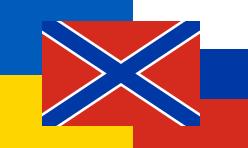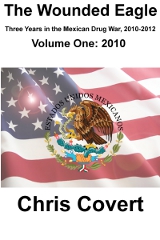Rooshun court limits disclosure of data on paratroopers

2014-11-13
Posted by: badanov
By Chris Covert
Rantburg.com
The Constitutional Court of Russia (Russian Supreme Court) ruled Tuesday that the circumstances of the deaths of Russian paratroopers must be disclosed to relatives, but also held that officials with "state secrets" can decide what information can be disclosed, according to Russian language news sources.
The case stems from the death of 12 paratroopers, relatives say were killed while in Ukraina this past summer. All 12 men were assigned to the Russian 76th Guards Airborne Division, for which its recruiting area is Pskov in northern Russia.
Last September Ukrainian media began to report about a Russian paratrooper who survived a massive Ukrainian artillery attack in Lugansk oblast (province) in Ukraina in mid August. According to reports, a total of 80 Russian soldiers died in that attack. All the dead were interred secretly in locations through Russia.
To date the only information about the attack and subsequent deaths of the soldiers were provided by the unidentified Russian soldier. Pro Russian military journalists have pointed out that it is rare that a single artillery attack can kill such a large body of trained soldiers, and that so far no documentary evidence has emerged as to the identities of the dead soldiers.
Russian human rights groups have been asking the Russian ministry of defense for information on where the soldiers were killed. Russia's official position in the Donbas war in southeastern Ukraina, where the 80 soldiers were killed, is that only individual volunteers have crossed the border to help the Donbas rebels. In other words, no Russian military units have crossed into Russia to help the Donbas rebels.
It is unclear in the current reporting -- inasmuch as it was clear two months ago -- that the Russian ministry of defense had refused to disclose even the locations of where the dead soldiers were interred. Apparently, going on Russian language reports, none of the paratroopers killed were interred in Pskov, where the Russian 76 Guards Airborne Division draws its recruits.
The ruling doesn't change that, but instead leaves what information the ministry of defense can disclose with the ministry of defense.
For their part, human rights groups' concerns over the place and time of death of the soldiers are in some part, political. According to Russian law, no Russian official at any level can order troops into a foreign land without first approval from the Russian parliament, the Duma. Such an action is prosecutable under current Russian law.
Disclosure of orders that presumably sent Russian soldiers to Lugansk would force prosecutors to begin an investigation of all those those involved, including officials inside the Russian ministry of defense, including military commanders.
The Russian Constitutional Court ruling essentially ends the possibility of any investigation as to whether Russian officials ordered whole military units into Ukraina.
According to the Russian news outlet Vedomosti, the court said that disclosing information surrounding the suspicious death of a loved one is "...not subject to classification of information on violations of the rights and freedoms of man and citizen, as well as violations of laws by bodies of state power... Refusal to provide such information can not be explained by the presence of state secrets in the operational-search activity. At the same time, the court does not question the need to protect certain information - for example, about operatives embedded in gangs. On this basis, the investigative and operational entities should carefully approach their work to classified information did not fall in publicly available materials of the case..."
A Constitutional Court representative also added that disclosing sensitive material from relatives should be limited to information prosecutors need to make a criminal case. That interpretation puts the onus on providing requested information squarely on the ministry of defense. However, the court also said only the ministry of defense can decide what information to disclose if it involves "state secrets".
A spokesman for the Union of Committees of Soldiers' Mothers of Russia, Valentina Melnikova, said that the ruling could be expanded to include cases outside of criminal cases, but she did not elaborate on how the ruling could be expanded.
Deputies of the Duma were not as optimistic in the reading of the court's decision.
Deputy Leo Schlosberg from Pskov, said that while the court could play a role in what information can be disclosed, the means of doing so is unmentioned in the ruling.
Chris Covert writes about foreign military issues for Rantburg.com. He can be reached at grurkka@gmail.com
If you have something to add, Fire Away!
Number of Comments so far: 0
Click here for a list of stories in the The 2014 War in Ukraina category



